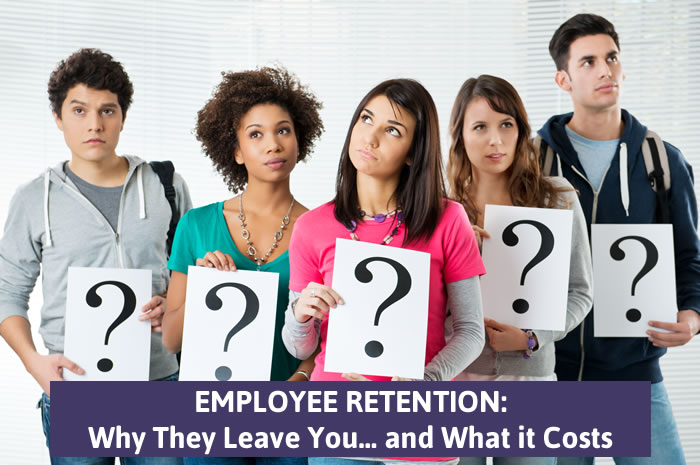I had a client who thought they had a “people issue”.
The effect of this people issue was a decrease in the profit margins although their sales were increasing each month.
By taking a diagnostic account of the cultural health of the company, I discovered some pretty alarming statistics. The rate of turnover for the company was over 50% per year. That was about 15% more than was usual for their industry.
Employee turnover costs can be staggering.
 My estimate, which was supported by SHRM, the Society for Human Resource Management, is that it costs over $5,500 to replace one minimum wage employee earning $12.65 per hour (BC’s Minimum wage) when all costs of recruiting, interviewing, hiring, training, reduced productivity, etc., are considered.
My estimate, which was supported by SHRM, the Society for Human Resource Management, is that it costs over $5,500 to replace one minimum wage employee earning $12.65 per hour (BC’s Minimum wage) when all costs of recruiting, interviewing, hiring, training, reduced productivity, etc., are considered.
The same SHRM report estimated that replacement costs amount to 30-50% of the annual salary of entry-level employees, 150% of middle level employees, and up to 400% for specialized, high-level employees.
How’s that for a bottom line shocker?
Retaining employees is an essential part of both workforce optimization and business productivity.
Employee turnover generally causes disruption, expense, and recruitment costs, so it is an imperative for most companies to increase retention rates and grow their employment brand and reputation.
So Why Do Employees Leave?
In my next few articles, I will cover a series of reasons for poor employee retention that will surely affect your business and your employees’ trust in you.
Today, let’s cover why they want to leave in the first place:
They Don’t Feel Valued
Only 1 in 5 Employees Feel Fairly Paid
| 43% of employers say their employees are paid fairly |
64% of workers are paid the market rate |
| 21% of workers think they are paid fairly |
35% of overpaid workers think they are underpaid Based on a survey by PayScale.com |
Signs your employees don’t feel valued:
- Triangulation – They complain to a cohort about their work, not being paid enough, not being appreciated – but problem still exists and others are negatively affected.
- Distress signals – lack of productivity or quality of work, apathy, social distancing from colleagues, unhealthy behavior
- Low Trust/Low Morale – only 22% believe that reasons for lack of pay increases are due to the stated budgetary restraints. 33% reported that their employer provided no rationale for their decision to deny a raise.
Whether workers believe in the rationale provided by their employer, it has a big impact on their job satisfaction and intent to leave.
When asked if they were going to look for new jobs in the next 12 months, over 50% said yes, even if they received a raise in pay. If they were denied a raise, that statistic increased to 72%.
This is a huge concern for businesses, large and small. So how can you make changes in the organizational culture to engage your employees so they feel valued, appreciated and engaged? Leave a comment below or contact me to discuss!







